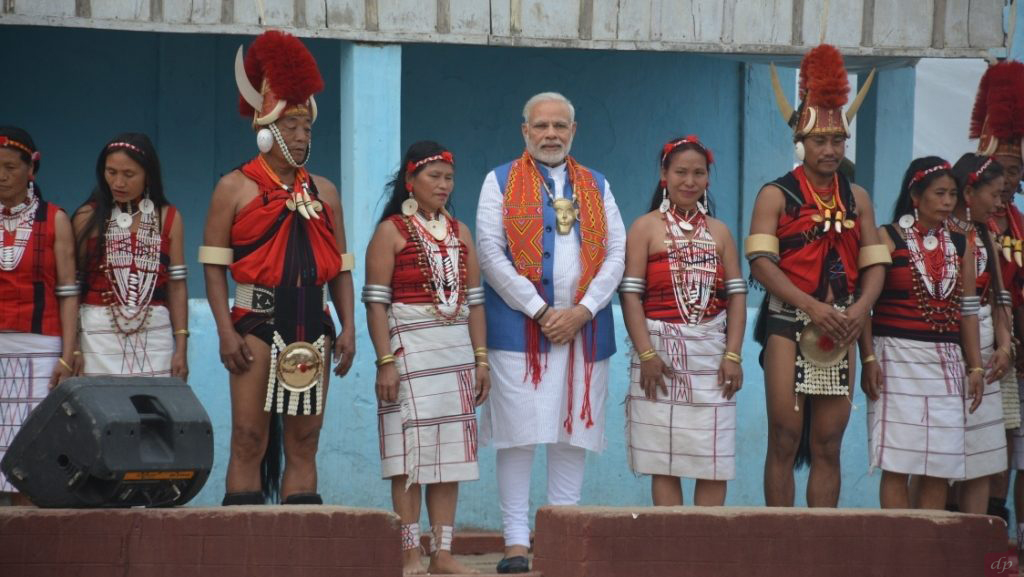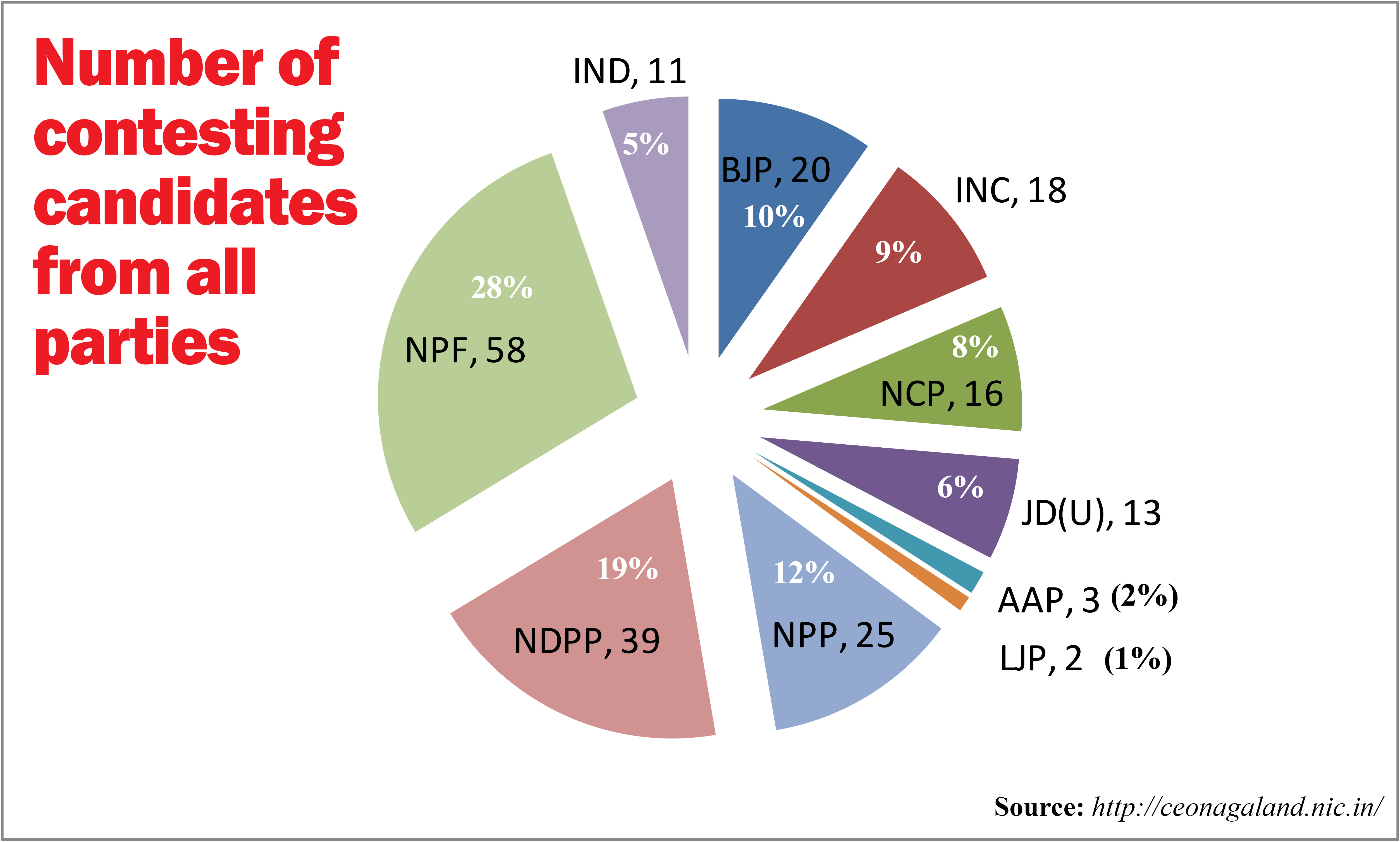A peak view of Nagaland polls
Nagaland may be one of the smallest states in India but there are many issues to deal with.

Now that the elections to the 13th Nagaland Legislative Assembly are over, it is time for the candidates and the poll pundits to indulge in post-poll analyses and predictions.
The question being asked is: Will the polls change the dynamics of a state with a lot of unique internal issues to deal with including a festering Naga issue?
The Core Committee of Nagaland Tribal Hohos and Civil Organisations (CCNTHCO) had called for a state-wide bandh on February 1 seeking to boycott the elections. The umbrella body had called for expediting a solution to the Indo-Naga issue instead of holding another round of Indian state elections.
The bandh, which received tepid response in some districts, was not marked by any violent incidents. The boycott call ultimately proved to be a damp squib as candidates were able to file their nominations, leading the CCNTHCO to dissolve.
Amid the electoral chaos, Prime Minister Narendra Modi also visited in Tuensang, Nagaland on February 22 as part of BJP’s election campaign in the north eastern states of India. While in Tuensang which borders Myanmar and is also the largest district of Nagaland, the Prime Minister highlighted on how Nagas have made invaluable contributions to nation building and assured, “we will bring solution early by taking everyone together.” Organic Nagaland and promotion of bamboo in agriculture while while BPO and Call centers in Nagaland were promises put forward by the PM.
Around 3400 Voter Verifiable Paper Audit Trail (VVPAT) machines and 77 companies of the Central Armed Police Forces were deployed to all 2,196 polling booths across the state.
Strict rules and regulations put in place by the Press Council of India (PCI) and the Media Certification and Monitoring Committee (MCMC) effectively robbed the political parties of their unfettered right to use mass media to their advantage. The advertisements on newspapers by political parties were allowed to be published only after they were issued a certificate of approval from the MCMC.
The poll campaign has been marred by instances of violence: there were assassination attempts on candidates; some were barred from entering their villages; and cases of violence among the rank and file of parties were reported in some districts, especially Wokha, Mokokchung and the newly formed Noklak district, which was formed on December 21, 2017. One party supporter at Tuli Mokokchung district succumbed to head injury sustained during the election campaigning on February 22.
A total of 10 political parties are seeking people’s mandate. Seven national parties, one state party and one registered (unrecognised) party, two regional parties and independents are in the fray.

As per the graph, NPF has the maximum number of candidates contesting with 58 and LJP the lowest with two.
While the ruling Naga People’s Front (NPF) tried to woo the electorate with its slogan ‘Transforming Nagaland with New Vision, New Image and New Future’, the NDPP used the slogan ‘Change is Coming’.
The Chief Electoral Office Nagaland launched a website for assembly elections 2018 (including an android app) for the benefit of the voters. The site helped the voters verify their voter ID, locate polling stations, download electoral roll PDF, candidate affidavits, elections expenses, etc. With the tagline, ‘If you do not vote, you have no right to complain’, the portal included links like conduct of elections, election expenses, etc.
A trend visible among the voters, both Nagas and non-Nagas, was the tendency to demand cash for votes. The trend was especially palpable in districts like Dimapur with high migrant population and non-Naga settlers. Tagged as ‘mini India’ or the ‘commercial hub’ of Nagaland, Dimapur has the highest population in the state with a total of 378,811 as per the 2011 Census published by the central government.
Alobo Naga, an internationally known Naga musician, said: ‘If every intellectual, and young people like you and me, change and do our bit in sharing and creating awareness about the importance of clean election, I am sure one day we can achieve it.”
“I know things are not right. The value and price of selling vote is higher than before, but I am still thankful to God and all those who are taking the initiatives of a clean election. Change is happening even in a small way,” he added.
Nagaland may be one of the smallest states in India, but its cup of woes has always been overflowing, with many gripping issues to deal with. The state is abysmally lacking in many developmental and human indices. Overall development is still a mirage. People are eagerly awaiting to see the contents of the ‘Framework Agreement’ signed between the central government and the National Socialist Council of Nagaland (Issak-Muivah) NSCN (I-M). They believe that the ‘Agreement’ will be a step towards lasting peace.
